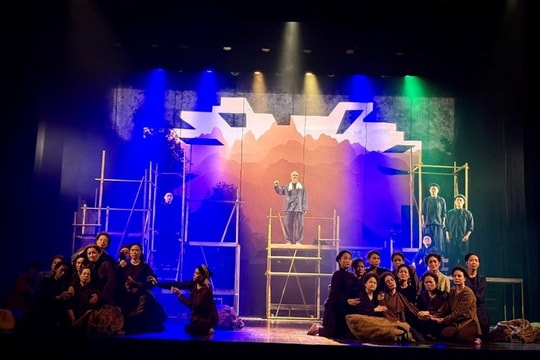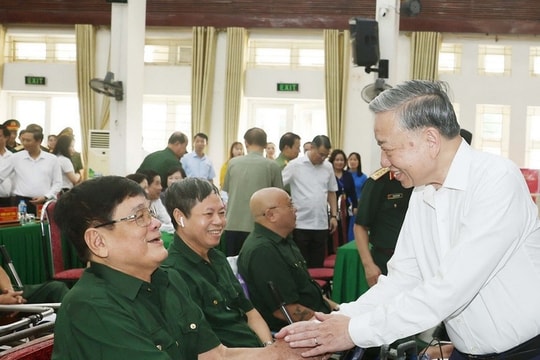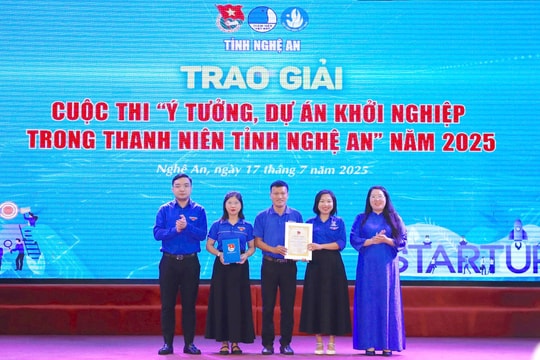Reflecting on Uncle Ho's words on self-criticism and criticism in the press
On June 9, the Central Party Office issued Document No. 1200-CV/VPTU to the relevant agencies requesting the implementation of the direction of General Secretary Nguyen Phu Trong to clarify and conclude on the information reported by the press related to Vice Chairman of Hau Giang Provincial People's Committee Trinh Xuan Thanh related to an article mentioned and of great interest to public opinion, cadres, party members and people.
The problem is not only the use and re-licensing of private vehicles as public vehicles, but the important thing is that the transfer and appointment of officials for Mr. Trinh Xuan Thanh have issues that need to be clarified. Through this incident, the role of the press in discovering and reflecting the opinions of officials and the masses on negative and shady manifestations and frustrations in daily life is once again seen more clearly so that organizations, agencies, units and localities can check, verify and handle them.
More importantly, the General Secretary directed the public announcement on the mass media when the case had just been assigned to the competent authorities to check and clarify right and wrong. This issue was brought up on the occasion of the 91st anniversary of Vietnam Revolutionary Press Day, contributing to encouraging and motivating press agencies, journalists and reporters to be more active in the fight against negative phenomena and not be afraid of the people's discoveries and reflections falling into silence.
30 years ago, General Secretary Nguyen Van Linh harshly criticized what he called “the frightening silence” to attack the “stronghold” of bureaucracy, corruption, waste, and negativity. “The frightening silence” is the silence of those in positions of power who collude, avoid, and cover up for each other to commit corruption, waste, and negativity... “The frightening silence” is also the silence of the people, of active people in the face of the negativity and wrongdoings that are obvious before their eyes and that of everyone.
This direction of General Secretary Nguyen Phu Trong is perhaps also a step to awaken the phenomenon of silence and relieve the fear of being criticized in the press in our country in the past time. This is also true to the guiding viewpoint and advice of President Ho Chi Minh 66 years ago. In the Su That Newspaper No. 109 published on April 15, 1949, there was an article "Bitter medicine cures diseases, telling the truth hurts people" by author LT (pen name of President Ho Chi Minh) talking about the fact that there are cadres who think that if they publicly criticize their shortcomings, it will be harmful, because:
“- The enemy will take advantage of this to counter-propaganda,
- Reduce the prestige of organizations and governments,
- Losing face of the cadre who committed that mistake,
- Just a little internal criticism is enough.
That is a mistake. That is being sick and afraid of medicine. That is not understanding the meaning and force of criticism.
| |
President Ho Chi Minh pointed out the way to prevent the enemy from counter-propaganda. That is, “there is nothing better than avoiding shortcomings and correcting shortcomings.” And if you have committed shortcomings, even if “you want to cover them up, people will know.” He also affirmed, “An organization or government that conceals the shortcomings of its cadres is a “weak” and “regressive” organization or government. If organizations and governments have the courage to point out the shortcomings of their cadres and have methods to correct them, then “their prestige will not only not decrease, but will increase.”
Any cadre who does not dare to openly admit his shortcomings, is afraid of criticism from colleagues and the people, and does not have the courage to correct his shortcomings, is not worthy of being a cadre. He emphasized: “Criticism must come from top to bottom and from bottom to top. Criticism from superiors is not enough. Criticism from comrades and colleagues is not enough. We must also welcome criticism from the masses, then criticism will be complete.” Uncle Ho advocated that all cadres, from top to bottom, must “compete to correct shortcomings and develop strengths.”
On July 31, 1952, Nhan Dan Newspaper published an article “Fighting against bureaucracy, corruption, and waste” by CB (pseudonym of President Ho Chi Minh) which also talked about the state of self-criticism and criticism in the press at that time. The article said: “Recently, the people and the press have begun (although still hesitantly and sparsely) to criticize. However, the organizations or agencies that have been criticized have remained silent, not published self-criticism in the newspaper, not sought to correct themselves. That is the attitude of “covering one’s eyes, catching the bird”, the attitude of “hiding the disease, afraid of medicine”, an attitude that is not honest, not upright. I hope that those who, which agencies have been criticized by the people or the press, will honestly self-criticize before the people and in the press”.
According to Hanoimoi


.jpg)
.jpg)

.jpg)



